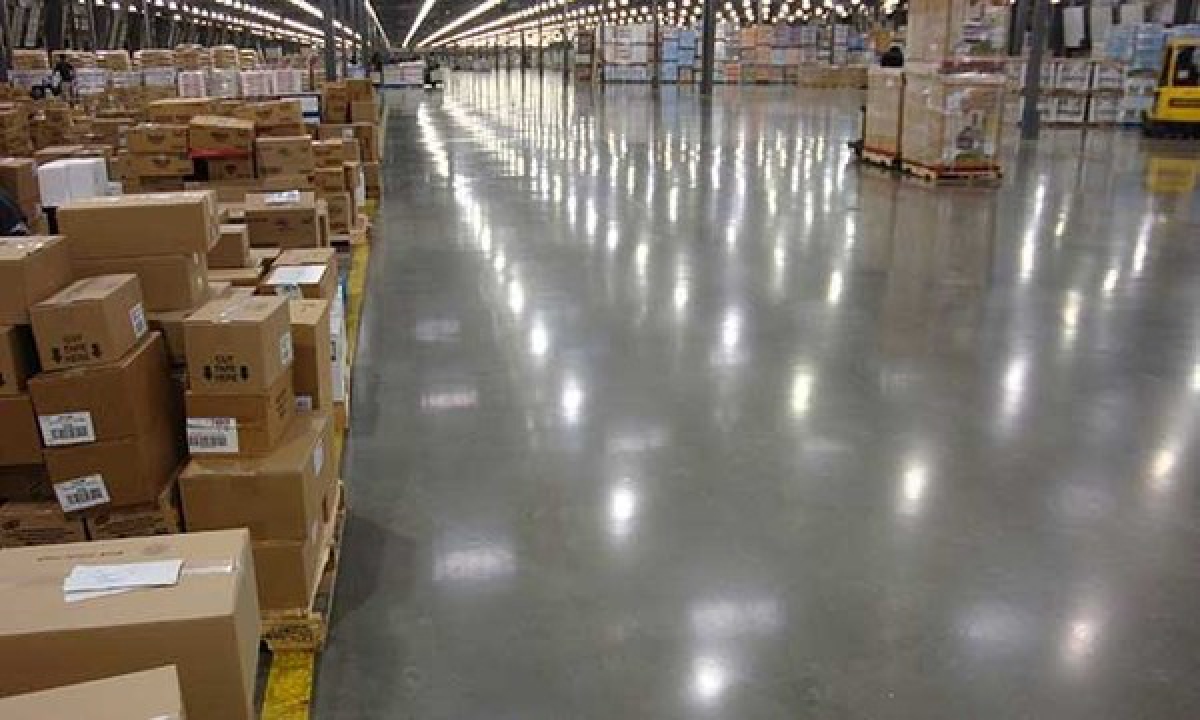The 3 Best Floor Systems for Refrigerated Concrete Floors
Concrete floor toppings can be used to greatly increase the durability and longevity of a concrete floor. Though there is some added cost associated with the most resilient concrete toppings, this cost will usually pay for itself with time. There are a variety of surfacing options available for refrigerated warehousing environments, including aggregate surface hardeners, improved joints, and expanding cement.
-
Dewatered Traprock Topping
Dewatered Traprock Topping is the most durable and resilient surfacing option for concrete floors. Dewatered Traprock Topping is designed to resist both abrasions and impacts for many years. It is estimated to last up to seven times longer than more conventional floor slab options. With a small number of joints, and no control joints, Dewatered Traprock Topping provides excellent resilience, easy maintenance, and a safe, consistent surface for equipment use. A Dewatered Traprock Toping surface is ideal for applications in high-traffic warehouses, 24 hour warehouses, and warehouses that utilize large amounts of equipment or heavy equipment.
-
Monolithic Traprock
More affordable than dewatered traprock topping, but still incredibly durable, surface Monolithic Traprock is designed to last up to five times longer than a conventional concrete floor. A light reflective, damage resistant floor option, Monolithic Traprock provides a smooth surface on which forklifts and other moving equipment can be used. Monolithic Traprock is ideal for refrigerated warehouses that have a moderate to large amount of traffic, including processing plants and distribution centers.
-
Shrinkage Compensating Concrete
Shrinkage compensating concrete floors take advantage of a combination of steel armored joints, expansive cement, and Monolithic Traprock or Dewatered Traprock Topping to create a durable and versatile surface. The advantage of shrinkage compensating concrete floors is that it eliminates all control joints. Shrinkage compensating concrete floors are more densified at the surface making them more durable and reduce maintenance and operational costs. Testing should be done to make sure that the floor slab is properly mixed and installed, and that the resulting floor is consistent both in strength and expansion.
The concrete floor systems available through FRICKS vary with cost, durability, and traffic. For more information about the differences between various concrete floor options, contact FRICKS today.

